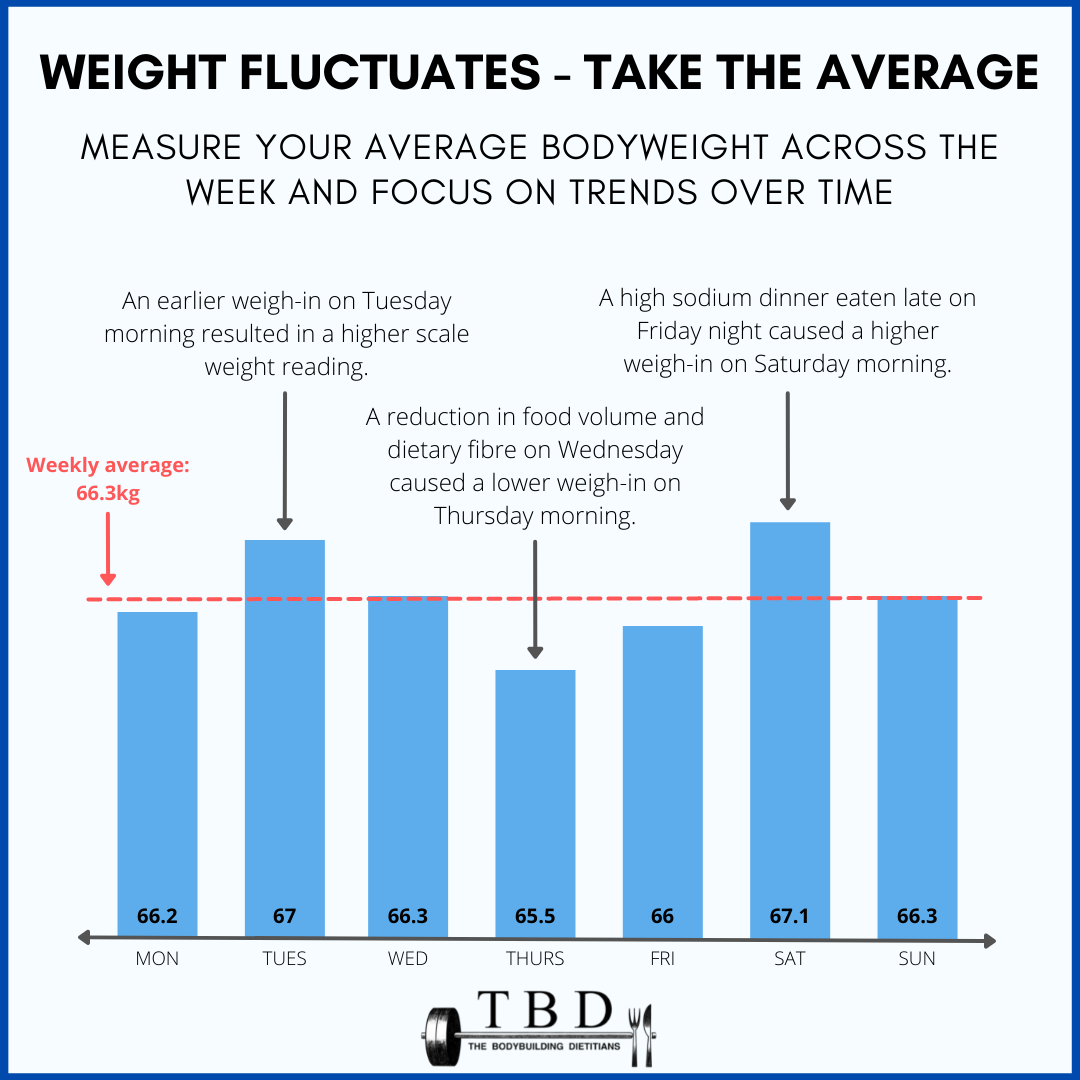Scale weight bouncing around? TAKE. THE. AVERAGE.
It’s certainly not uncommon for people (especially in the fitness community) to weigh themselves each morning. However, it’s important to understand the context of WHY certain numbers are looking back at you, and not to let your mood be heavily dictated if they’re a few decimal points above or below your previous weigh-in.
When looking at scale weight on an acute basis (day-to-day) we should actually view it as an incredibly IMPRESSIVE feat that the body CAN balance out over a 24 hour period to even BE within a few decimal points of a previous weigh-in, let alone the exact same weight a few days in a row! The reason for this is because across a 24 hour period our body is experiencing significant fluid shifts of multiple kilograms! This is a result of eating, drinking, exercising, going to the bathroom, sweating, breathing, and much, much more! And amazingly... the body is so-well biologically equipped to manage these shifts and impressively balance out at an equilibrium.
How to try to minimise large fluctuations throughout the week:
▪️ Aim to take your morning fasted weight on the same scale and at the same time each day
▪️ Aim to keep food volume and fibre intake relatively similar day-to-day
▪️ Aim to consume familiar foods that you digest well each day
▪️ Aim to stay well-hydrated and keep sodium intake fairly consistent day-to-day
▪️ Aim to consume your meals at similar times each day, and finish your last meal at least ~2 hours prior to bed
▪️ Prioritise your sleep and aim for 7-9 hours each night
Bear in mind that it’s also not necessary to rigorously track your scale weight, as there are many other metrics of progress! Whatever the number is, make sure you’re comparing and interpreting it alongside progress photos, training performance, skinfolds, girth measurements, health markers, your relationship with food, quality of life and the like.
The number on the scale is just that... a number! Think objectively about why that number may be higher or lower than yesterday. Try to not associate acute fluctuations with actual tissue weight gained or lost - because it likely isn’t ACTUAL tissue!
